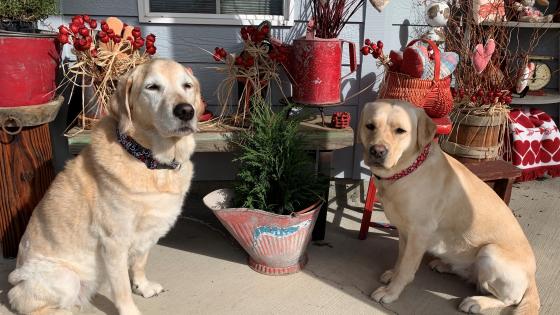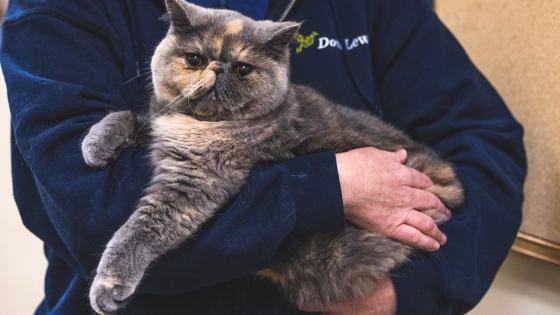
Poor Air Quality and Blue-green Algae: Outdoor Risks for Portland Pets
Thick wildfire smoke in the Metro area and algae toxins in Ross Island Lagoon pose threat to dogs and cats
PORTLAND, Ore. – Recent natural hazards, including wildfire smoke and algae blooms, can cause serious health issues for Portland’s pets. Doctors at DoveLewis Veterinary Emergency & Specialty Hospital warn pet owners to limit outdoor access and avoid contaminated areas.
Poor Air Quality
As smoke from regional wildfires spreads across the Portland Metro area, canines and felines are in danger of experiencing respiratory distress. Certain animals are especially at risk for health issues, including puppies and older dogs, pets with asthma and bronchitis, and dogs with rounder faces and shorter noses (bulldogs, Boston terriers, etc.).
Smoke inhalation can also cause disorientation and confusion, fainting, lethargy and seizures. Owners should seek immediate veterinary care for their pets if they show symptoms of illness. Follow these tips for keeping your pet safe:
- Keep pets indoors with the windows closed.
- Use air conditioning to further filter the air, if possible.
- Outdoor bathroom breaks should be kept short.
- Avoid prolonged exercise.
- Keep pets well hydrated.
- Look for signs of respiratory stress and eye inflammation. If pets show symptoms, see a veterinarian immediately.
- Urban farm animals (goats, chickens, rabbits) are less likely to become ill, as they are used to dusty conditions. However, it’s important to monitor them for abnormal behavior or symptoms of illness.
- Be sure to keep them sheltered from heat.
- For homes that are smoky indoors due to the proximity to fires, consider keeping pets at a doggy day care or with a trusted friend who lives away from the area.
Signs of respiratory stress include:
- Difficulty breathing
- Unusual or excessive coughing, sneezing, vomiting or loss of appetite
- Swelling or inflammation of the mouth, eyes, skin or upper airway
- Open-mouthed breathing, especially in cats
- Weakness/lethargy
- Uncoordinated walking/unable to stand
- Increased salivation
Blue-green Algae
Toxic algae blooms, also known as harmful algal blooms (HABs), occur when certain types of algae rapidly multiply in water bodies, producing harmful toxins that can be dangerous to pets, wildlife, and even humans. These blooms are often characterized by a noticeable change in the water's color, texture, or odor. When ingested or exposed to these toxins, pets can experience a range of symptoms, from mild irritation to severe illness.
Dogs, in particular, are at risk when it comes to toxic algae blooms. They are more likely to come into contact with contaminated water while swimming or playing near lakes, ponds, or other water sources. Ingesting or even licking algae-contaminated water from their fur can lead to symptoms such as vomiting, diarrhea, lethargy, difficulty breathing, seizures, and in extreme cases, even death.
If you suspect your pet has come into contact with toxic algae or is showing any symptoms of illness, consult a veterinarian immediately. Early treatment is crucial to ensure your pet's safety and well-being.
View the full list of current local advisories here. If you are unsure about whether or not water is safe for your pet to swim in, it's always better to keep out or away from it to ensure they stay safe.
Signs of toxic algae poisoning include:
- Vomiting
- Diarrhea
- Drooling
- Weakness
- Staggering
- Convulsions
- Pale gums
If your pet needs emergency veterinary care, DoveLewis is open 24 hours a day, every day of the year. We’re located at 1945 NW Pettygrove Street in Portland or call us at 503.228.7281.



